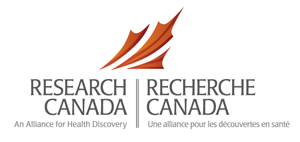Gairdner Foundation Caucus Event

Tuesday, October 24, 2017 from 12:00 p.m. – 1:30 p.m.
Parliamentary Restaurant, Centre Block, Parliament Hill, Ottawa
This event is by invitation only.
Overview: The Gairdner Foundation, in partnership with Research Canada, is organizing a lunch with key representatives from the Government of Canada to meet Canada Gairdner Award laureates along with Dr. Janet Rossant, President and Scientific Director of the Gairdner Foundation.
Laureate Overview:
Dr. Cesar Victora
Emeritus Professor, Federal University of Pelotas,
Pelotas, Brazil
Dr. Victora is awarded “For outstanding contributions to maternal and child health and nutrition in low and middle income countries, with particular focus on the impact of exclusive breastfeeding on infant mortality and on the long-term impact of early-life nutrition.”
Dr. Victora is receiving the 2017 John Dirks Canada Gairdner Global Health Award. This is awarded for a scientific advancement that has made a significant impact on health in the developing world.
Dr. Antoine M. Hakim
Emeritus Professor, Neurology, University of Ottawa, Ottawa, Ontario, Canada
Dr. Hakim is awarded “For outstanding research into stroke and its consequences and championing stroke prevention and treatment in Canada and beyond”
Dr. Hakim is receiving the 2017 Canada Gairdner Wightman Award which is given to a Canadian who has demonstrated outstanding leadership in medicine and medical science throughout his/her career.
The Work:
Dr. Victora’s career has focused on the factors affecting maternal and child health in low- and middle income countries. He has concentrated in the three main areas of child health and nutrition, health program monitoring and evaluation, and health equity. Returning to Brazil after his doctorate, he helped set up one of the longest running birth cohort studies in the world, the 1982 Pelotas Birth Cohort, in which 6,000 individuals are being followed up with to the present time. His studies helped establish the influence of the first 1,000 days (from conception until the age of two years) on lifelong outcomes, including chronic diseases and human capital.
The Impact:
Possibly, Dr. Victora’s greatest contribution to Public Health was his work in the 1980s with the first study showing the importance of exclusive breastfeeding for preventing infant mortality. His findings contributed to global policy recommendations by UNICEF and the World Health Organization for mothers to breastfeed their infants exclusively for the first six months of life. More recently, his long-term birth cohorts documented the benefits of breastfeeding for adult intelligence, education and income, as well as the long-term consequences of early-life undernutrition. Victora also made important contributions on how to evaluate the impact of health programs on child mortality and on the study of social inequalities in child health.
The Work:
Dr. Hakim is one of Canada’s most distinguished scientists who has earned a world-renowned reputation for his leadership in neuroscience research with an emphasis on stroke research. In the early 1980’s Dr. Hakim characterized a penumbral region around a stroke’s ischemic core — brain tissue with enough energy to survive for a short time after blood loss and with the potential to regain normal function if blood flow was restored. Dr. Hakim, who joined the University of Ottawa in 1992, led the charge to set up the Canadian Stroke Network, a Network of Centres of Excellence; he then partnered with the Heart and Stroke Foundation and other organizations to develop and apply a nation-wide Canadian Stroke Strategy. This work was critical to changing attitudes towards stroke which went from being a devastating condition to one that is preventable, treatable and repairable.
The Impact:
In 2006, Dr. Hakim and colleagues published the first ‘Canadian Best Practice Recommendation for Stroke Care’ (updated in 2008, 2010 and 2012) and developed performance indicators and toolkits for healthcare providers to set up stroke units and improve emergency medical services. They also instituted a multi-layered national education program to enhance stroke prevention and the delivery of acute stroke care through coordination of services and implementation of best practice. Within five years of the Strategy’s implementation, Ontario alone saw referrals to stroke prevention clinics increase by 34% and stroke patient admissions decrease by 11%.


